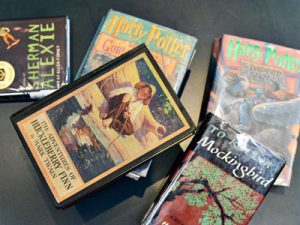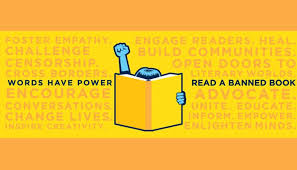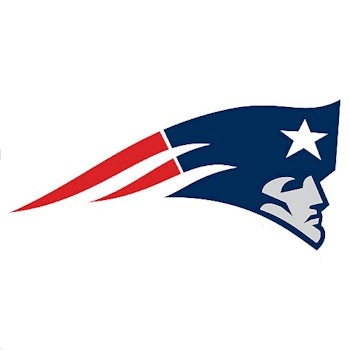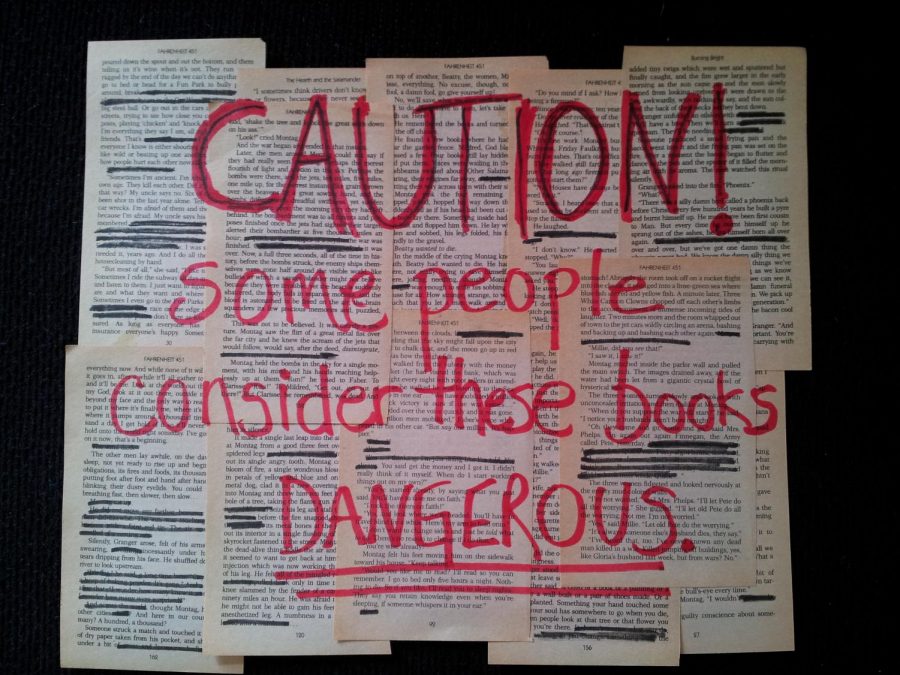Banning Books: Against Our First Amendment and Damages Youth
October 16, 2018
“Congress shall make no law respecting an establishment of religion, or prohibiting the free exercise thereof; or abridging the freedom of speech, or of the press; or the right of the people peaceably to assemble, and to petition the Government for a redress of grievances.”
This is what the first amendment to our U.S. Constitution states, but schools all over the nation have been prohibiting the words of others. While schools present reasons for the banning, most of the excuses are absurd. Many books, such as To Kill A Mockingbird or Catcher in the Rye have been banned from many schools. Maya Angelou’s work typically isn’t allowed in school due to it’s subject matter. Does restricting youth from certain subjects and works of art benefit them or does it teach them something else?

As of October 2017, a school district in Mississippi banned To Kill A Mockingbird because it “makes people uncomfortable.” The classic book has been controversial for some time due to its racial slurs, use of curse words, and a discussion about rape. In its first instance of being banned, a parent had complained about the discussion of the sexual assault and that it was morally wrong to have in the school.
Another book that is highly challenged and banned due to sexual assault is Maya Angelou’s I Know Why The Caged Bird Sings. The book is an autobiography of Angelou’s younger life where she discusses the sexual misconduct that happened to her. Many say that the sexually explicit content of sexual abuse to a child isn’t something that needs to be present in the young reader’s life. It’s also been claimed that the book is “anti-white.” It could be assumed that due to the fact that any talk about the subject (rape) isn’t approved of in most elementary and middle schools, and that the discussion of rape being ”morally wrong” could cause many young victims to feel it’s wrong to come out about it, or elevate the fear level within them.
Racism, genocide, and slavery are topics that are commonly discussed in a variety of classic books, and it is a large part of our shared history. Originally published during the time of slavery, Uncle Tom’s Cabin was banned due to it being “anti-slavery” and not allowed to be read in the South. Now it’s disapproved of because of it’s brutally honestly about the cruelty of slavery as well as it’s reference to slaves being called the “N” word. Another book, The Adventures of Huckleberry Finn by Mark Twain, is banned by some academic institutions due to it’s racist nature, such as racial slang like “wetbacks” and the use of the “N” word. Even The Words Of Cesar Chavez was banned by a Mexican-American Studies Program because Chavez used the terms “wetbacks” and “illegals” in direct correlation to undocumented immigrants. In the Union High School District, a classic, Gone With The Wind, by Margaret Mitchell, was removed from the curriculum because of the topic of slavery within the book.
Among those who agree that these books and others shouldn’t remain in schools, there are some critics that believe most of these books were written for a reason and are important to read and know about. Currently, a fair amount of these books have received enough publicity and that has lead to more and more schools and people opening their mind to some of the books that have been banned.




